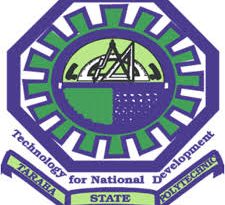MAJOR CHALLENGES FACED BY NIGERIA EDUCATIONAL SYSTEM
Education is said to be the bedrock of a nation,Education According to the National policy on education is said to be an instrument per excellence for effecting national development of a country,and a dynamic instrument of change.
Education is a deliberate effort of creating an atmosphere of learning,the learning process for a learner to actively develope it potential.
Every society has their own system of education,Nigeria educational was chaotic with each state having its own separate educational system,not until 17th of September 1969 when the National curriculum conference was held in Lagos under the support of the Nigeria educational research council (NERC) which is now changed to Nigeria educational research and development council(NERDC),This conference was attended by representatives of every strata of Nigeria society,which include medical doctors,parents,teachers,engineers,preist,legal practitioners,students,farmers etc.
The outcome of the Conference was the modification of the 1969 conference paper nd the adoptions of the national policy on education.In the policy,6-3-3-4 system of education was adopted to replace the old educational system which is 6-5-2-3 structure. The 6-3-3-4 structure comprises of
6 years of primary education
3 years in senior secondary education
4 years in Tertiary education
The main focus of the national policy on education is on 6-3-3-4 system of education,with its emphasis on practical work,development of science and technology,modificatiom of the old syllabus and curriculum,and also the encouragement of self employment.
Nigeria educational system has been confronted by lots of challenges,An attempt was made here to take a cursory look at the major challenges faced by Nigeria educational system hoping to proffer a meaningful solutions to it.These challenges include;
1 POOR CURRICULUM IMPLEMENTATION:In Nigeria, poor curriculum implementation is a major challenges faced by Nigeria educational system . There is a great different between policies formulated by government and the actual implementation of these policies. Policy makers often vary from policy implementers, hence, this gaps becomes a problem in course of implementation. The National policy on education has clearly state what curriculum should characterized at each level of our educational system.Curriculum implementation in Nigeria faces some issues over the years major among this issues are poor policies perspective,finanancial problem,poor professional practitioners,poor public perception,inadequate inspection lack of good information and communication network. It is not just restricted to the implementation aspect, but also curriculum development in general. Having proper curriculum makes for a sound educational and academic sector because the students will be taught with respect to recent happenings and developments.
A change for a better nation buoyancy will commence when the government at various levels decide to pay more attention to the Educational system of the country and address the key variable for successful Currie implement
2 EDUCATIONAL INEQUALITY:Inequality in education involves unequal allocation and distribution of the needed resources in education system like Infrastructure, laboratory materiala or instruments, text books, Trained teachers, to mostly undeveloped societies .some students are unable to get the standard education and sometimes do not access education at all. It often occurs in some communities which are poor that they cannot afford private school fees . The government is the leading cause of the inequalities when it fails to fund public schools and create policies to alleviate inequalities like ensuring that all children get access to school. However, even in private schools there exists inequality when the schools employ unqualified teachers and favor some students.. National policy on education(NPE) stipulated that equal rights of educational opportunities should be given to all citizens of Nigeria. Education is use to minimize inequalities in large societies,because education brings all citizens to equal level.
3 LACK OF STANDARD FACILITIES AND INFRASTRUCTURE: Lack of standard facilities and Infrastructure is also one of the challenge faced by Nigeria educational system Building laboratories, and equipment are important elements of effective learning environments in schools and universities. Standard infrastructure facilitates, better instruction, improves student outcomes, and reduces dropout rates, among other benefits which also aid teaching and learning process.The quality of school facilities affects students in various ways. Firstly, a lack of facilities limits the ability of a student to achieve various learning and extra curricula activities. Which affect teaching and learning process.Secondly, a lack of facilities has a negative impact on a teachers’ job satisfaction, which undermines their motivation to teach.
4 LINGERING ASUU STRIKE: Annual strike by the Academic staff Union of universities is one the worse challenges faced my Nigeria Tertiary education .ASUU has gone on strike 16 times in 23 years that is 16 times since 1999 and a cumulative period of three years. There were no lectures for 165 days in 2013 and 2018, for 94 days. Some publications say there is one strike every five years by the Academic Staff Union of Universities. This is frightening, considering its implications on education of the youths, educational standards and overall manpower development in the land. from the Educational system propounded by the national curriculum conference in 1969 students are to use 4ywars in Tertiary institutions,but here we are to the reverse is the case ,As a result of the lingering strike a program of course that is to be completed within the duration of 4or 5 years turns up to be more than that,these. Constant disruption of academic activities as a result of the strike has serious negative impact on the students and even on the Educational system itself.
5 INFLUENCE OF POLICIES ON EDUCATION: In Nigeria education is one of the vital tools utilized by the political class to enhance their legitimacy and control the machinery of government and administration . Nigeria educational sector is largely controlled by politics . During civilian regimes,politicization of education is promoted when politicians dangle the carrot of free education to students at all levels for political ambition.Critical educational policies and decisions are incorporated as political programs of political parties. An example of that was promise of free education for all citizens by the “unity party of Nigeria” in contrast to the ” National party of Nigeria” promise of qualitative education During the 1979 election. In some cases,schooks are established for political reasons,just to satisfy emotional geo political consideration.It is generally accepted that the success or failure of any educational system depends aon the political system of the area concerned. Education cannot be separated from politics because it is an aspect of political needs of the society.
6 CHANGE IN GOVERNMENT POLICIES : The frequent changes in government policies have a great effect on the educational system of a state actually created more problems than solutions to school administrators, particularly the frequent transfer of teachers and principals. During the military regime ,there were frequently change of government with an attendant change of education policies mostly through ministers,permanet secretaries, etc. Such change of policies has a disadvantages of creating impromptu educational laws and policies,abolishing the existing ones.For instance frequent change is academic calendar of the school.
7 Lack of enough teachers and inspectors: The quality of education in a country largely depends on the number of sound and qualified teachers in the school. The national curriculum conference held in 1969 described a teacher as ” The key man in the entire educational programme and observed that the quality of his training makes the end result of his job as a teacher” Teachers who are deficient in their knowledge of study needs to be sent for in service training to update their knowledge and to acquire current methodologies and skills in training thier students for effective growth of the Educational system.
8 POOR CURRICULUM DISSEMINATION: curriculum dissemination can simply be defined as a process of informing teachers,stakeholders in curriculum about new and revised curriculum ideas,document or materials, so that they can accept and understand the innovation.but in some cases where when a new and revised curriculum is tendered ,it is not is not widely distributed to the necessary people who are to implement the Curriculum,and this can lead to widespread misuse or disuse of curriculum materials in schools.
9 QUALITATIVE INCREASE IN GROWTH: As a result of Large enrollment in schools,students population increases without equal increase in the number of standard schools to absorb the overcrowded students in classrooms without enough chairs,tables, laboratories and other materials to carry out the teaching and learning process. The resultant effect yield the quantitative growth of students population and quantitative decline in the provisions of need school facilities and Infrastructure.
10 POOR TEACHERS SALARY STRUCTURE: In Nigeria today,teachers has not been given adequate priority as stated by the national policy on education.Teachers are expected to earn both intrinsic and extrinsic reward for effective academic activities of a country.I recall” The success or failure of any educational system depend mainly on the teachers.poor salaries of teachers could have effect on the teacher regular activeness in school activities.
PROFFERED SOLUTIONS TO CHALLENGES FACED BY NIGERIA EDUCATIONAL SYSTEM.
1 GOOD CURRICULUM IMPLEMENTATION: change for better nation fortune will begin when government decide to pay more than lip service to the Educational system and address the key variables for successful curriculum Implementation,by providing well trained qualified teachers, provision of standard infrastructure and facilities,effecive Monitoring of curriculum implementers
2 PROVISION OF TRAINED AND QUALIFIED TEACHERS: A nation educational system depend largely on the quality of the teachers , because improving the standard of education us through Teachers .If they are not trained,managed and equipped to do so they will not be an effective improvement on the academic performance of the students.Therefore Teachers should be carefully selected,trained and maintained for effective development of a country educational system.
3 PROVISION OF INFRASTRUCTURE AND FACILITIES: Infrastructure like buildings,laboratries, classrooms,librariesare important for educational system to work efficiently,These facilities makes teaching and learning process smooth and productive.It also probably direct experience between the cleaners and the materials ensuring better understanding of what is been taught.
4 EFFECTIVE MONITORING/SUPERVISION: Agency should be assigned for effective Monitoring of schools mostly private school to determine how and where educational activities are carried out,and also to know the type of curriculum they based upon.
5 RESOLVING STRIKE: The annual long face off between ASUU and FG should be settled by stakeholders, If strike becomes persistent I fear Nigeria educational system might be imbalance and this will have large effect mostly on the students.










Your article helped me a lot, is there any more related content? Thanks!